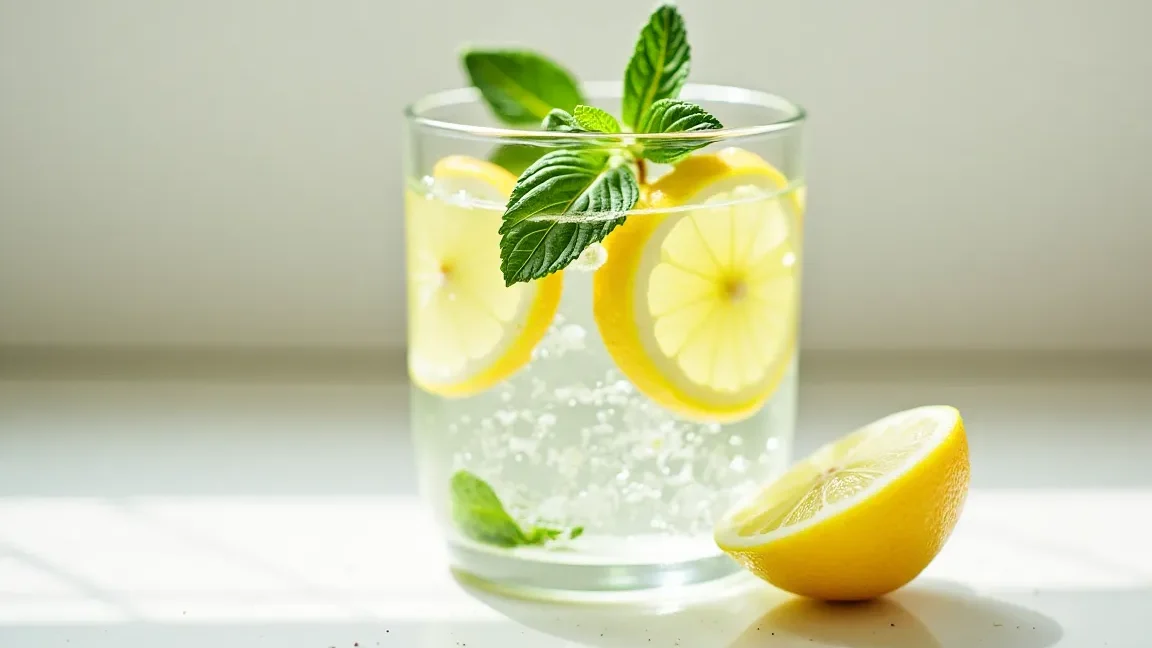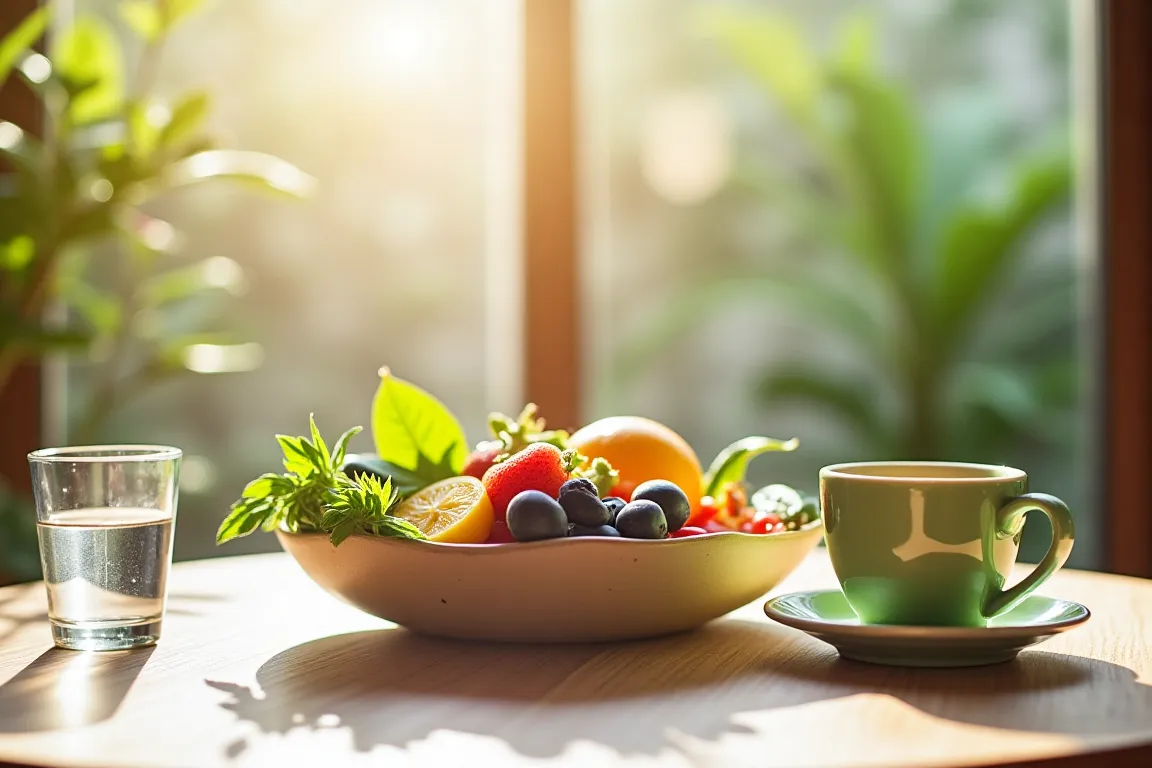Table of Contents
What is the Best Drink for Breakfast? Breakfast sets the tone for your entire day, and choosing the best drink for breakfast can make all the difference. While food fuels your What is the Best Drink for Breakfast? Breakfast sets the tone for your entire day, and choosing the best drink for breakfast can make all the difference. While food fuels your body with essential nutrients, beverages play a key role in rehydrating, energizing, or relaxing after a good night’s sleep. From water to coffee and smoothies, numerous healthy morning drinks should be considered. But what indeed makes a drink the perfect choice for your breakfast? The answer depends on your lifestyle, dietary preferences, and health goals.
This article explores the nutritional value, benefits, and drawbacks of various popular morning beverages, including water, coffee, tea, smoothies, milk, and juices. We’ll also discuss options tailored to different dietary needs and highlight drinks to avoid during breakfast.
Breakfast drinks are more than a way to quench thirst; they are pivotal in kickstarting your metabolism, improving mental clarity, and providing essential hydration. Let’s dive into the factors when choosing the perfect morning beverage.
Nutritional Factors to Consider When Choosing the Best Drink for Breakfast
Choosing the best drink for breakfast requires understanding your body’s nutritional and physiological needs, especially after an overnight fast. Here are some essential factors to help guide your choice.
Morning Hydration: A Key to Healthy Breakfast Beverage Choices
After several hours of sleep, your body wakes up mildly dehydrated. Rehydrating is crucial to kickstarting your metabolism and maintaining optimal body function. Choosing the best drink for breakfast, such as water, helps replenish fluids without any added calories or sugars. As one of the healthiest morning hydration drinks, water ensures you start your day on the right note.
To enhance hydration, consider:
- Infused Water: Add slices of lemon, cucumber, or fresh mint for flavor and additional vitamins.
- Electrolyte-Enhanced Water: This can be particularly beneficial after a strenuous workout or for those needing mineral replenishment.
Hydrating first thing in the morning ensures your body is primed to digest food and absorb nutrients effectively.
If you manage specific health conditions like PCOS, check out What is the Best Morning Drink for PCOS Weight Loss? for tailored hydration options.
Energy Boost vs. Relaxation: Finding Your Best Morning Drink
The type of drink you choose often depends on how you want to feel in the morning. If you’re looking for the best drink for breakfast to feel alert and energized, caffeinated beverages like coffee or tea are ideal. For those who prefer a calming start, herbal teas or warm milk-based drinks are excellent healthy morning drinks that provide a soothing effect.
- Energy-Boosting Drinks: Coffee, green tea, and black tea are rich in caffeine, which stimulates the central nervous system and increases focus.
- Relaxing Drinks: Chamomile tea or warm almond milk can help balance cortisol levels, reducing morning stress.
Interested in unique coffee options? Explore the Iced Americano Recipe – A Cool Coffee Delight to spice up your mornings.
Nutritional Value of Breakfast Drinks: What Makes the Best Drink for Breakfast?
Breakfast beverages should complement your meal by providing vitamins, minerals, and macronutrients such as protein, healthy fats, or carbohydrates. Drinks like smoothies or milk-based options can serve as meal replacements, while coffee or tea can act as adjuncts to a balanced breakfast.
Consider these elements:
- Protein-Rich Drinks: These are especially valuable for staying satiated longer. Examples include smoothies with Greek yogurt, protein powders, or soy milk.
- Low-Sugar Options: To avoid energy crashes, opt for drinks without added sugars, such as plain tea, black coffee, or unsweetened nut milk.
- Vitamin-Packed Choices: Freshly squeezed juices or smoothies with fruits and greens provide antioxidants and immune-boosting nutrients.
Check out Best Breakfast Shots to Energize Your Morning for more energy-packed ideas.
Top Healthy Drinks for Breakfast
The best drink for breakfast is one that provides hydration, energy, and essential nutrients. Let’s explore popular choices that cater to various health needs.
Water: A Timeless Classic

Water may seem too simple to be the “best drink,” but its importance cannot be overstated. Drinking a glass of water in the morning rehydrates your body, kickstarts your metabolism, and aids digestion.
Benefits of Morning Water Consumption:
- Flushes out toxins accumulated overnight.
- Promotes skin health and elasticity.
- Enhances cognitive function by maintaining hydration levels.
Consider infused water with ingredients like lemon, ginger, or cucumber for variety. These additions provide a refreshing twist and extra nutrients like vitamin C or antioxidants.
Coffee: The Energy Booster

Coffee is a staple morning beverage for millions worldwide and is often considered one of the best drinks for breakfast. Its caffeine content is a powerful stimulant that improves alertness and concentration, making it a popular choice among healthy morning drinks.
Health Benefits of Coffee:
- Rich in Antioxidants: Coffee contains polyphenols, which reduce inflammation and protect against chronic diseases.
- Boosts Mental Clarity: The caffeine in coffee enhances focus and productivity, making it ideal for busy mornings.
- Improves Physical Performance: Coffee stimulates adrenaline production, benefiting athletes and active individuals.
To discover new coffee variations, visit the Iced Americano Recipe.
Tea: A Gentle Awakener
Tea offers a gentler alternative to coffee and is often regarded as one of the best drinks for breakfast, providing a range of benefits for those seeking healthy morning drinks.
Popular Morning Teas:
- Green Tea: Contains caffeine and L-theanine, a compound that promotes relaxation and focus simultaneously.
- Black Tea: Offers a more decisive caffeine kick, with antioxidants similar to coffee’s.
- Herbal Teas: Chamomile or ginger tea can soothe digestion and reduce stress, ideal for those who prefer a non-caffeinated start.
Tea is versatile, with options that energize, detoxify, or calm, depending on your preference.
Smoothies: Nutritional Powerhouses
Smoothies are one of the most versatile and nutrient-dense options for breakfast. By blending fruits, vegetables, proteins, and healthy fats, you can create a balanced meal in liquid form.
If you’re curious about high-protein breakfasts, consider Can I Eat Cottage Cheese for Breakfast?
Tips for a Healthy Smoothie:
- Use a base like unsweetened almond milk, coconut water, or plain yogurt.
- Add nutrient-dense ingredients like spinach, kale, or frozen berries.
- Incorporate a source of protein such as Greek yogurt, protein powder, or nut butter.
- Enhance with superfoods like chia seeds, flaxseeds, or matcha powder.
Smoothies are perfect for those on the go and can be tailored to fit specific dietary preferences or goals.
Milk and Plant-Based Alternatives
Milk has long been a traditional breakfast beverage, offering a good source of calcium, vitamin D, and protein. With the rise of dietary preferences, plant-based alternatives have also gained popularity.
Dairy vs. Plant-Based Options:
- Dairy Milk: High in protein and essential nutrients like potassium. Best for those without lactose intolerance.
- Almond Milk: Vitamin E is low-calorie and nutrient-rich. E.
- Soy Milk: Comparable to dairy milk in protein, ideal for vegans or lactose-intolerant individuals.
- Oat Milk: Creamy texture with heart-healthy beta-glucans.
These options cater to different dietary needs while providing essential morning nutrients.
Fresh Juices: A Burst of Vitamins
Freshly squeezed juices, especially those made from whole fruits and vegetables, are among the best drinks for breakfast as they deliver an instant boost of vitamins and antioxidants. These nutritional breakfast drinks are refreshing and healthy to start your day.
Fruit vs. Vegetable Juices:
- Fruit Juices: Rich in natural sugars, providing quick energy, but should be consumed in moderation. Orange juice is a popular choice due to its vitamin C content.
- Vegetable Juices: Low in sugar and packed with nutrients. Examples include carrot, beetroot, and spinach juice.
For a cultural twist, read What Do Irish Drink for Breakfast?
Drinks to Avoid in the Morning
While certain beverages can positively kickstart your day, others may hinder your health and energy levels. It is essential to understand the best options when selecting the ideal beverage for breakfast. Certain breakfast drinks can affect your energy levels or have only a small amount of nutrition, making them unsuitable for a morning routine.
Sugary Beverages
Sugary drinks might seem tempting, but they provide little to no nutritional value and can cause rapid spikes and crashes in blood sugar levels.
Examples of Sugary Morning Drinks to Avoid:
- Flavored Coffee Drinks: Many coffee shop favorites, like caramel lattes or mocha frappes, are loaded with added sugars and unhealthy fats.
- Pre-Packaged Smoothies: Bottled smoothies often contain excessive sugar from added sweeteners and fruit concentrates.
- Sweetened Juices: Juice blends with high-fructose corn syrup or other added sugars can lead to energy crashes later in the day.
Why Avoid Them?
Consuming sugary drinks in the morning:
- This leads to energy fluctuations that affect productivity.
- Contributes to long-term health risks like weight gain and diabetes.
- It offers empty calories without keeping you full or satisfied.
Instead, choose unsweetened options or make your beverages home to control the sugar content.
Carbonated Drinks
Carbonated beverages, including sodas and energy drinks, are poor breakfast choices. They often contain high sugar levels, artificial ingredients, and carbonation, irritating the stomach.
Key Issues with Morning Sodas:
- Acidity: The acidity of soda can upset your digestive system, especially on an empty stomach.
- Excessive Caffeine: Energy drinks with high caffeine content can lead to jitteriness and dehydration.
- Nutritional Void: These drinks lack essential nutrients, leaving your body undernourished after a long night of fasting.
Healthier Alternatives:
If you want something bubbly, try sparkling water with natural flavors like lemon or fruit. It’s refreshing, and it’s free of harmful additives.
Alcoholic Drinks
Although it is not common, a few individuals drink alcohol in the morning, like mimosas and Bloody Marys, during events such as brunches. However, alcohol dehydrates and can impair cognitive performance, making it a poor breakfast beverage.
Effects of Alcohol in the Morning:
- Dehydration: Alcohol is a diuretic, leaving your body more dehydrated.
- Sluggishness: It impairs alertness and productivity.
- Negative Impact on Metabolism: Consuming alcohol early can interfere with your body’s ability to burn calories efficiently.
Artificially Sweetened Drinks
Drinks containing artificial sweeteners, such as diet sodas and low-calorie drinks with flavored flavors, are healthier choices; however, they may be a source of hidden dangers.
Potential Risks:
- Digestive Issues: Artificial sweeteners like aspartame or sucralose can cause bloating or discomfort.
- Increased Cravings: These sweeteners may trigger sugar cravings, leading to unhealthy snacking later.
- Uncertain Health Effects: Long-term consumption of artificial sweeteners has been linked to metabolic and gut health concerns.
Instead, choose naturally sweetened options like herbal teas with honey or fresh fruit juices.
Why Excessively Processed Milk Drinks Aren’t the Best Drinks for Breakfast
Many commercial milk-based drinks, such as flavored milk or packaged shakes, are loaded with sugar, preservatives, and artificial flavors.
Why They Fall Short:
- A high sugar content leads to energy surges and crashes.
- Low Nutritional Value: Often stripped of the beneficial properties of whole milk.
Opt for plain milk or make your shakes home using fresh ingredients and no added sugars.
You can maintain sustained energy and focus throughout your day by steering clear of these less beneficial options.
Best Drinks Based on Dietary Preferences
Every individual’s dietary needs are unique. If you’re on a particular diet or are dealing with a medical issue, There’s a drink for breakfast that can help you reach any health-related goals you’re seeking to attain. Here’s a list of the most beneficial beverages per your diet preferences.
Keto-Friendly Morning Drinks
The ketogenic diet focuses on consuming low-carb, high-fat foods, so it is essential to select beverages that align with these ideals.
Top Keto-Friendly Drinks:
- Black Coffee with MCT Oil or Butter (Bulletproof Coffee): Provides a quick energy boost and supports ketosis by supplying healthy fats.
- Unsweetened Almond or Coconut Milk: Low in carbs and high in flavor, these plant-based milks are excellent for keto dieters.
- Green Tea: Naturally low in carbs and packed with antioxidants, it’s a refreshing and keto-friendly choice.
Pro Tip: Avoid sweeteners that contain carbs, and instead opt for stevia or monk fruit if you prefer a sweetened drink.
Vegan-Friendly Options
If you are a vegan or following a plant-based diet, many cruelty-free and nutritious breakfast drinks are available.
Top Vegan Drinks:
- Plant-Based Smoothies: Use non-dairy milk, fresh fruits, leafy greens, and vegan protein powders for a balanced drink.
- Herbal Teas: Rooibos, chamomile, or peppermint tea options can provide an energizing and caffeine-free beginning to your day.
- Oat or Soy Milk Lattes: These drinks mimic the creaminess of traditional lattes without any animal-derived ingredients.
Vegan beverages are naturally versatile and can cater to various taste preferences.
The Best Drinks for Breakfast for People with Medical Conditions
Certain medical conditions require careful consideration of breakfast beverages to avoid complications.
Diabetes:
- Unsweetened Drinks: Black coffee, herbal teas, or water are excellent choices as they don’t raise blood sugar levels.
- Low-Sugar Smoothies: Focus on high-fiber ingredients like spinach and chia seeds to stabilize blood sugar.
High Blood Pressure:
- Low-Caffeine or Decaf Drinks: Limit caffeinated beverages as they may temporarily increase blood pressure.
- Beet Juice: Known to help reduce blood pressure due to its nitrate content.
Lactose Intolerance:
- Non-Dairy Alternatives: Almond, oat, and rice milk are lactose-free options with a creamy texture.
The Best Gluten-Free Drink Options for Breakfast
While beverages are typically gluten-free, some flavored or processed drinks might contain hidden gluten.
Safe Choices for Gluten-Free Diets:
- Plain Coffee or Tea: Naturally gluten-free and widely available.
- Homemade Smoothies: Use certified gluten-free ingredients to avoid contamination.
- Nut Milk: Ensure they are labeled gluten-free, as cross-contamination can occur during processing.
Best Low-Calorie Morning Drinks for Breakfast
If weight management or calorie control is a priority, many low-calorie beverages help you stay on track.
Top Low-Calorie Drinks:
- Black Coffee or Tea: Virtually calorie-free and excellent for boosting morning energy.
- Sparkling Water with Lemon: Offers hydration and a refreshing flavor without adding calories.
- Vegetable Juices: Low-calorie options like cucumber or celery juice are packed with nutrients.
Making sure you drink drinks tailored to your diet will ensure you’ll start the day feeling confident.
Frequently Asked Questions (FAQ):
What is the healthiest drink to start your day?
The best drink to start your day with is water. It rehydrates your body after sleep, aids digestion, and prepares your metabolism for the day ahead. If you prefer a flavorful option, unsweetened herbal teas or green tea are also excellent due to their antioxidant properties.
Is coffee or tea better for breakfast?
Both coffee and tea have unique benefits. Coffee provides a substantial caffeine boost that enhances alertness and focus, while tea offers a gentler stimulation with added antioxidants. The best choice is based on your caffeine tolerance and personal preferences.
Are smoothies a good choice for breakfast?
Yes, smoothies can be a fantastic choice for breakfast, especially when balanced with fruits, vegetables, protein, and healthy fats. They are versatile, nutrient-rich, and easily customized for specific dietary needs. However, avoid using excessive fruit or sweeteners to prevent sugar overload.
Should I drink juice in the morning?
Freshly squeezed juice, particularly vegetable juice, can be a good morning drink when consumed in moderation. However, store-bought juices often contain added sugars and lack fiber. For a healthier alternative, opt for juices made from whole fruits or vegetables at home.
What drinks should I avoid for breakfast?
Avoid sugary beverages, carbonated drinks, and highly processed milk-based drinks in the morning. These options can lead to energy crashes, digestive issues, and long-term health risks due to their high sugar content and lack of nutrients.
What’s a good drink for people on the go?
Smoothies and protein shakes can be excellent alternatives if you have a busy morning. They can be made ahead of time, are easy to carry, and provide a balanced combination of macronutrients to fuel you through the day.
Conclusion
Choosing the best drink for breakfast depends on your health goals, lifestyle, and dietary preferences. Rehydrating yourself by drinking water or energizing yourself by drinking tea or coffee, as well as fueling the body using a nutritious smoothie, is a choice for anyone.
To make the healthiest choice:
- Prioritize hydration with water or herbal teas.
- Opt for nutrient-packed options like smoothies or fresh juices.
- Avoid sugary or highly processed beverages that provide empty calories.
Starting your day with the right drink ensures you’re energized, focused, and ready to tackle whatever lies ahead. Remember, the best drink aligns with your body’s needs and supports overall wellness.
